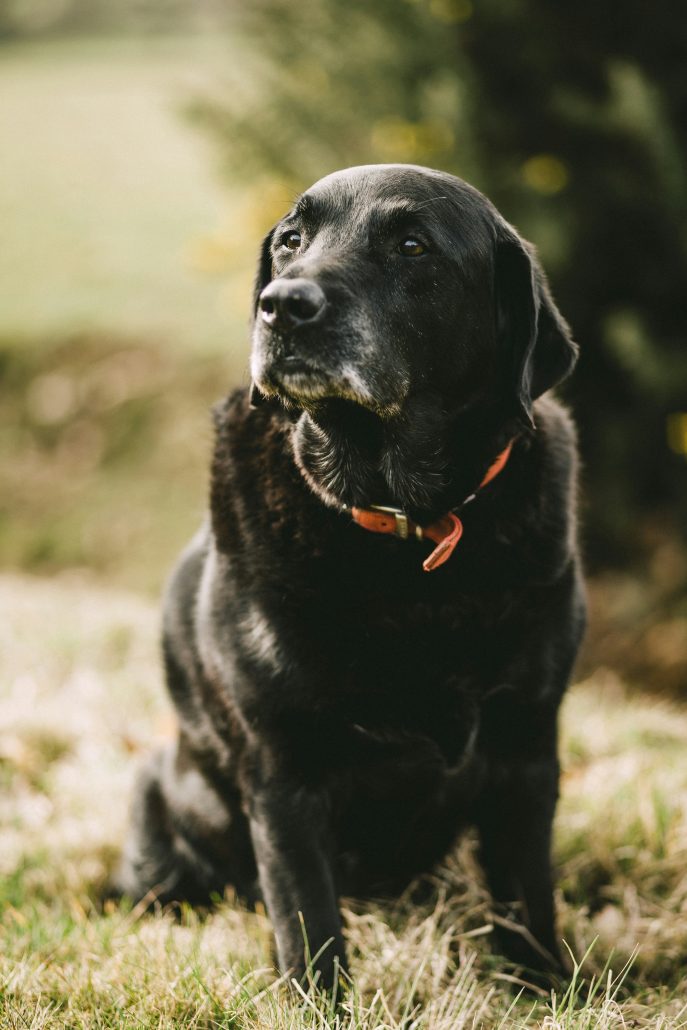
Caring for a pet is a rewarding experience, but it can also come with challenges as they age. But have you ever wondered if dogs can get dementia? Just like humans, dogs can experience cognitive decline as they get older. This condition, known as dog dementia or canine cognitive dysfunction (CCD), can be difficult for both the dog and their owner.
In this post, we will explore what canine dementia is, some of the causes and insightful tips on treating and managing this condition to ensure the best quality of life for your furry friend.
Can Dogs Really Get Dementia?
Yes, as they age, dogs can begin to experience cognitive decline. Dog dementia, or canine cognitive dysfunction (CDS), is similar to Alzheimer’s disease in humans. It is a progressive condition that primarily affects older dogs, usually over the age of 10. Just like humans, dogs can experience memory loss, confusion, and changes in behaviour as a result of this condition.
What Causes Cognitive Dysfunction in Dogs?
The exact cause of dog dementia is not fully understood however it is thought that there are several factors that may contribute to its development. One of the primary factors is age. As dogs age, their brain function naturally declines. Genetic factors may also play a role, as certain dog breeds are more predisposed to developing cognitive dysfunction.
What Is Sundowner Syndrome in Dogs With CDS?
Sundowner syndrome, also known as sundowning, is a phenomenon observed in some dogs with canine cognitive dysfunction (CDS). It refers to a pattern of increased confusion, restlessness, and agitation that occurs in the late afternoon or evening. Dogs with sundowner syndrome may exhibit intensified symptoms during this time, making it challenging for them and their owners.
While the exact cause of sundowner syndrome in dogs is not fully understood, it is believed to be related to changes in their internal body clock. The disruption of the circadian rhythm can lead to increased confusion and anxiety during the evening hours.
This makes it important to provide a calm and structured environment for dogs with cognitive decline with consistent routines and a comfortable sleeping area. If the symptoms worsen or become unmanageable, it is crucial to consult with your veterinarian for proper guidance and support.

What Symptoms Should You Watch For?
While the signs may vary from dog to dog, there are common symptoms to watch for. They may become disoriented, forgetful, and have difficulty recognising familiar people and finding their way around familiar places.
Changes in behaviour are also common in dogs with dementia. Your dog may exhibit increased anxiety, restlessness, or irritability. They may become more vocal or exhibit repetitive behaviors. Changes in sleep patterns, such as excessive sleeping during the day and restlessness at night, can also be indicative of cognitive dysfunction.
*It is important to note that these symptoms can also be caused by other underlying health conditions, so it’s crucial to consult with a veterinarian for an accurate diagnosis.
Managing and Treating Dog Dementia
While there is no cure for dog dementia, there are steps you can take to manage and improve your furry friend’s quality of life.
Creating a Stimulating Environment
Creating a stimulating environment with interactive toys, puzzles, and regular exercise can help keep your dog’s mind active and engaged. Activities that challenge their cognitive abilities can help slow down the progression of dementia and improve overall cognitive function.
Establishing a Consistent Routine
Consistency is key when caring for a dog with dementia. Establishing a consistent routine and providing a calm and comfortable living space can also help reduce anxiety and confusion. Familiarity and routine can provide a sense of security and stability for dogs experiencing cognitive decline.
Diet & Nutrition
Dietary adjustments can play a role in managing dog dementia. Providing a balanced diet rich in antioxidants, omega-3 fatty acids, and vitamins can support brain health and reduce inflammation. Your veterinarian may recommend specific dietary adjustments or supplements tailored to your dog’s individual needs to support cognitive function.
Medication Options & Vet Care
In some cases, medication may be prescribed to manage the symptoms of dog dementia. These medications can help alleviate anxiety and improve overall well-being. However, it’s important to consult with your veterinarian to determine the most appropriate medication and dosage for your furry friend’s specific needs.
Read More: Keeping Your Senior Dog Active: Tips and Strategies for a Happy and Healthy Furry Friend

Supporting Your Dog Through Their Golden Years
Dog dementia, or canine cognitive dysfunction (CDS), is a condition that can affect our beloved furry companions as they age. By understanding the causes, symptoms, and management strategies, we can provide the best care and support for our dogs.
If you suspect that your dog may be experiencing cognitive decline, it is important to consult with a veterinarian for an accurate diagnosis and treatment plan. However, with the right care and support, we can help our furry friends navigate through the challenges of dog dementia and ensure they continue to live happy and fulfilling lives.
Contact The House Call Vet today to schedule a consultation and learn more about how we can support your dog’s cognitive health.

